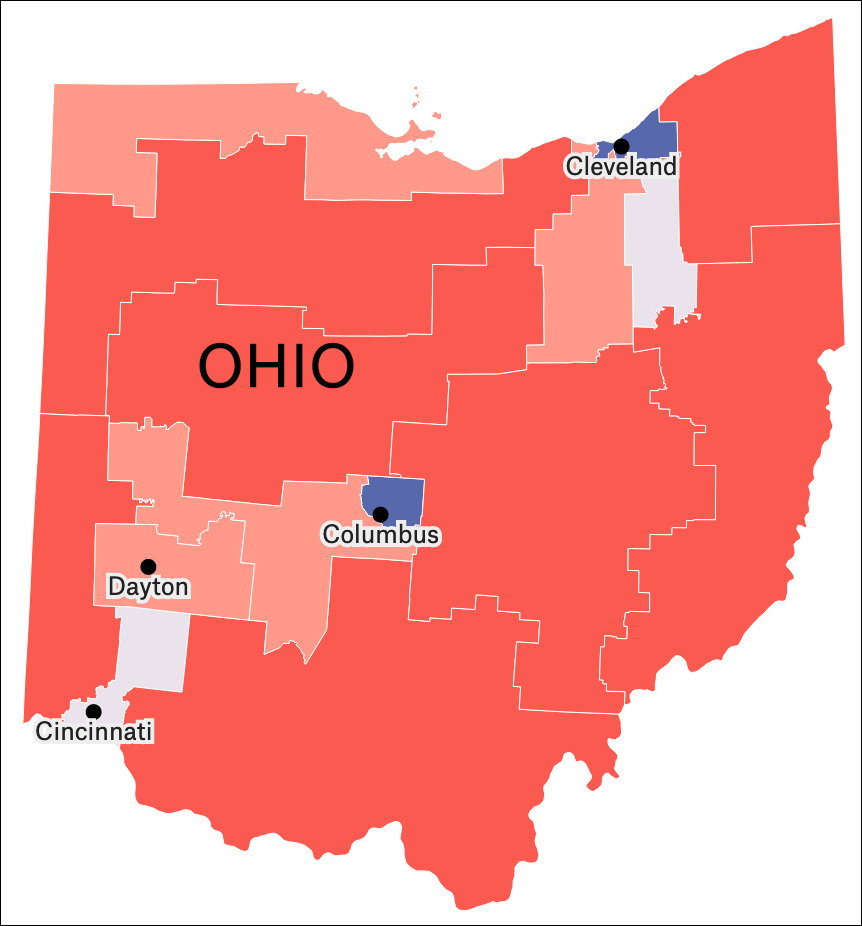
Please click on the image above or here to go to an interactive version of the map on FiveThirtyEight.
By Jim Ellis
April 20, 2022 — A surprising court decision that invalidated the original 2022 Maryland congressional map has made the Free State slightly more competitive for the coming election, and now we see the candidate universe.
The Maryland filing deadline was moved to April 15 from the first postponed deadline of March 22. The original filing was scheduled for Feb. 22 in conjunction with the June 28 primary. The latter election date was moved to July 19 as a result of the original congressional map being disqualified in court.
With the new map in place, two districts were most affected. The new 1st District of Rep. Andy Harris (R-Cockesyville) returns to safe Republican status at R+25 according to the FiveThirtyEight statistical team. Under the rejected Democratic legislature’s map, the Harris seat was rated only R+8. Rep. David Trone’s (D-Potomac) western Maryland 6th District now moves into Republican territory at R+1, a major change from the D+12 seat that the Democratic legislature drew.
A total of 69 candidates are running for the US House in Maryland, but the most emphasis will be the Democratic primary in Rep. Anthony Brown’s (D-Bowie) open 4th District and Trone’s 6th CD in the general election.
The Democrat’s July 19 primary will determine Rep. Brown’s successor as he joins the open race for state attorney general. The new 4th District, anchored in Prince Georges County, and which stretches as far north as Laurel, is just under 60 percent black and 87.7 percent minority. Therefore, this majority minority seat will elect its new member in the Democratic primary.
A familiar face filed towards the end of the period — former 4th District Congresswoman Donna Edwards (D), who won a special election in 2008, and then clinched four more regular electoral contests. She unsuccessfully ran for the Senate in 2016, and now is attempting a comeback with her successor, Rep. Brown, moving on.
Edwards’ main competitor is former Prince Georges County State’s Attorney Glenn Ivey who was the clear leader until the former congresswoman returned. The third key candidate is former state Delegate Angela Angel. A fourth contender, state Delegate Jazz Lewis (D-Largo), decided to file for re-election and dropped out of the congressional race. Six other Democrats filed, but appear to be minor candidates as the race is winnowing to the three aforementioned contenders.






